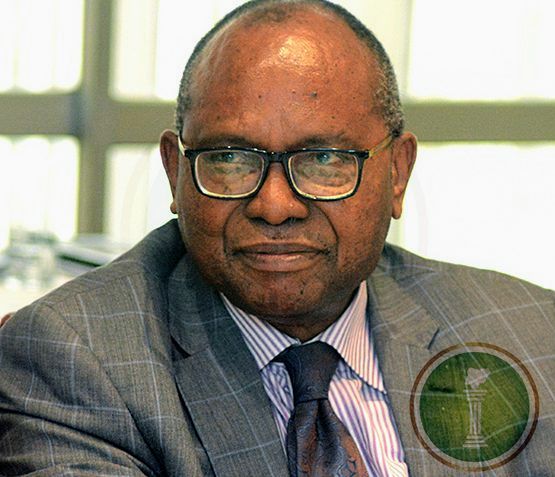Nigeria Present Teetering Chaos, Violent and Threats to Insecurity is Nigerian Problem –Prof. Anya O. Anya
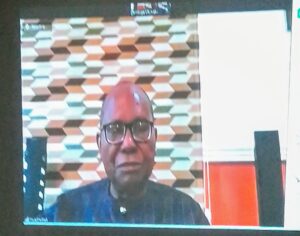
Nigerian intellectual professor of science and respected educationist, Professor Anya O. Anya has described the present state of Nigeria’s teetering at the edge of deep abyss and low intensity chaos with violent phenomena; violence, criminality, banditry, kidnapping, insurgency, communal clashes, ritual killings and divisiveness that are now daily experience and fast becoming a challenge, dilemma and a threat to Nigeria security, as a Nigerian problem that must be dealt with from its epicentre in the north.
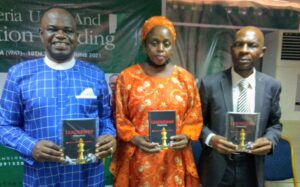
“It can no longer be regarded as a Northern, a Southern, an Eastern or even a Western problem. It is a Nigerian problem. We must tackle it as a national problem which we must deal with from its epicentre in the North”.
Prof. Anya was speaking at a lecture he delivered on, ‘Nigeria Unity and Nation Building’ at the Double Diamond Platform Global inaugural lecture and award presentation in Lagos.
Going down memory lane with the graphic history of Nigeria, Prof. Anya said, the creation of what is now Nigeria was not created for national administration and integration, but an amalgamation to balance the books such that the deficit of the Northern Protectorate can be off-set by the deficit of the Southern Protectorate and Colony of Lagos.
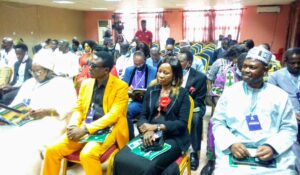
Nigeria as presently constituted is a very plural society: multi-ethnic, multicultural and multireligious that was created as happenstance and accidental without an attempt to share a common vision that could germinate into viable national consciousness in the future. Nigeria’s existence has always been a factor of aliens cohabitating in a supposed common house but confined in their rooms without bonding, shared vision and unity of purpose.
Giving an insight to what should have been a working solution, Anya said, the intensity of regional vision placed above social anthropological and cultural factors that should have determine the building of a new nation and mould conscious national unity to clearly defined the structure and foundation for a new nation was underrated, ignored and not considered by the founding fathers.
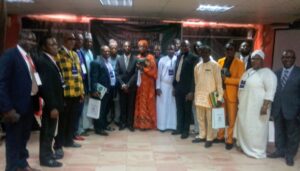
The consequence is Nigerian leaders indulging in wholesale limitations of the values, artifacts and the social and cultural usage of the past that has resurrected the renewed intensity and ferocity in the last five years in the light of sectional, sectarian and often discriminatory policies of the present government that has birthed separatist movements and protagonist clamouring for succession and independent states from the present Nigeria as constituted.
“Under the present administration of President Muhammad Buhari, it is agreed by most analysts that Nigeria diversity have been grossly mismanaged. Even the inefficient efforts to manage our diversities through the federal character principle or even the assignment of quotas have been abused,” he said.
 The globally acknowledged professor of science lamenting on the present situation, said, Nigeria is currently enmeshed in a multiplicity of crisis with multifunctional facets that has contributed to the emergence of deep fissures in the body politic. Citing social crisis that lacks national cohesion and often left to stark poverty of the people. The political crisis that has led to the loud clamour for restructuring, devolution and redefinition of the constitutional relationship. Also, the economic crisis which has left us sixty years after our independence from colonial rule mired in underdevelopment when our peers with less conducive circumstances have exploited emerging global circumstances to become developed and emerging global powers in the modern sense of development.
The globally acknowledged professor of science lamenting on the present situation, said, Nigeria is currently enmeshed in a multiplicity of crisis with multifunctional facets that has contributed to the emergence of deep fissures in the body politic. Citing social crisis that lacks national cohesion and often left to stark poverty of the people. The political crisis that has led to the loud clamour for restructuring, devolution and redefinition of the constitutional relationship. Also, the economic crisis which has left us sixty years after our independence from colonial rule mired in underdevelopment when our peers with less conducive circumstances have exploited emerging global circumstances to become developed and emerging global powers in the modern sense of development.
Adding that in the present circumstances, Nigeria have had in the last decade the insurrection in the North East engineered by Boko Haram that has extended to some states in the North West with the grip of bandits, kidnappers and sundry purveyors of criminality. While in the North Central, the rampaging Fulani herdsmen have displaced the indigenous people with the intention to acquire their lands as settlements and colonies. Also, in the South, South West, South East and South South, same Fulani herdsmen have occupied their forest and carried out campaigns of murder and arson. In an effort to counter these new lords of the forest and foreign interlopers, there came the emergence of new self-help vigilantes and other local defenders of their territorial and ancestral lands.
 Proffering solutions to the lingering problems and challenges, Prof. Anya Anya called on the President to prioritise solving Nigeria’s social and economic problems instead of tackling the economic problems and underdevelopment of Niger.
Proffering solutions to the lingering problems and challenges, Prof. Anya Anya called on the President to prioritise solving Nigeria’s social and economic problems instead of tackling the economic problems and underdevelopment of Niger.
Mr. President must develop a viable strategy with certain basic conditions, and the first is, there must be trust and confidence in the leadership which is the foundation for credibility. The reorganisation and reintegration of the nomadic Fulanis who are now a problem, not only to themselves but to other Fulanis and the Nigerian society at large with education and re-education as well as realignment of values. Also, the religious factor should be carefully and responsibly handled, so as not to be the detonator for explosive results.
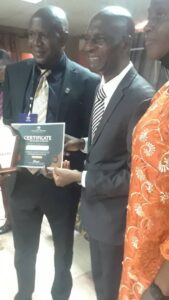 Prof. Anya finally said, insecurity is one of the biggest non-tariff barriers to trade and investment that will countervail and undermine all policies for growth, poverty reduction and development. It is therefore a must to accord insecurity with highest level of priority.
Prof. Anya finally said, insecurity is one of the biggest non-tariff barriers to trade and investment that will countervail and undermine all policies for growth, poverty reduction and development. It is therefore a must to accord insecurity with highest level of priority.
“In underlining the multiple crises that faces Nigeria and it’s multi-dimensional features, the search for solution must include the search for the appropriate leadership fit for purpose in the 21st century environment”, he said.
Also featured during the lecture was the public presentation of a book, Leadership Principles authored by Dr. Prince Obed Ezeonye, Coordinator/Convener, Double Diamond Platform Global.
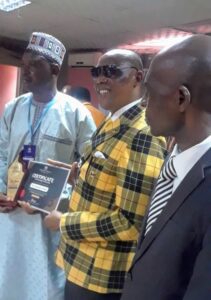 Among the award recipients are, Hon. Justice Bode Rhodes-Vivour, JSC, Prof. Sola Stephen Aliu, Rev. Dr. Tunde Bolanta, Barr. Monday Ubani, Rev. Fr. Kuti Y. A Immanuel, Rev. Engr. Ete Ikpang Etteh, Barr. Chioma Derrick Agidibi, Evang. Samuel Yahaya, Engr. Steve Ayuba, Chief Oliver Okere and other notable Nigerians.
Among the award recipients are, Hon. Justice Bode Rhodes-Vivour, JSC, Prof. Sola Stephen Aliu, Rev. Dr. Tunde Bolanta, Barr. Monday Ubani, Rev. Fr. Kuti Y. A Immanuel, Rev. Engr. Ete Ikpang Etteh, Barr. Chioma Derrick Agidibi, Evang. Samuel Yahaya, Engr. Steve Ayuba, Chief Oliver Okere and other notable Nigerians.


